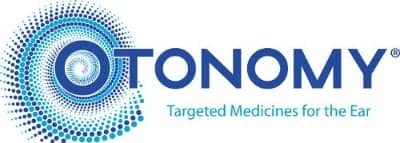Otonomy, Inc. (NASDAQ:OTIC), a biopharmaceutical company dedicated to the development of innovative therapeutics for diseases and disorders of the ear, announced its plan to focus resources on the development of multiple clinical and preclinical programs addressing important unmet medical needs in otology. In particular, Otonomy intends to complete the clinical development to support registration of OTIVIDEX in the United States for patients with Ménière’s disease, and will advance multiple programs for the prevention and treatment of sensorineural hearing loss, and the treatment of tinnitus. In order to focus its resources on pipeline development, the company is immediately discontinuing commercial support for OTIPRIO (ciprofloxacin otic suspension) which is expected to significantly reduce future operating expenses and result in estimated cash savings of more than $20 million in 2018, according to Otonomy. Discussions are underway to divest OTIPRIO.
Key Elements of Business Plan
- Complete Clinical Development of OTIVIDEX for Ménière’s Disease: As previously announced, the AVERTS-2 Phase 3 trial achieved its primary endpoint (p value = 0.029) with OTIVIDEX demonstrating clinically significant treatment benefit for patients with Ménière’s disease. Although this trial was terminated early, the patient data was collected according to the study protocol and analyzed according to the statistical analysis plan previously reviewed by the US Food and Drug Administration (FDA). The company believes that these actions preserved the integrity of the clinical trial and that AVERTS-2 meets the requirements to serve as one of two successful Phase 3 trials requested by the FDA at the End-of-Phase 2 meeting. The company plans to meet with the FDA during the first quarter of 2018 to review these results and discuss remaining clinical requirements for registration of OTIVIDEX in patients with Ménière’s disease.
- Advance Development of Multiple Programs for Hearing Loss and Tinnitus: Otonomy plans to continue the development of multiple programs for the prevention and treatment of sensorineural hearing loss, and the treatment of tinnitus. The hearing loss programs, currently in preclinical development, involve the anatomical and functional repair of ribbon synapses, protection of hair cells from chemotoxicity, and regeneration of hair cells. Otonomy is also developing gacyclidine, a selective NMDA receptor antagonist, for the treatment of tinnitus. Hearing loss and tinnitus affect large patient populations and are important unmet medical needs because they have a significant burden on patients and lack effective treatments.
- Discontinue Commercial Support and Divest OTIPRIO: Otonomy is eliminating employment positions and ceasing programs related to the commercialization and market support of OTIPRIO. This action does not impact the current approval status of OTIPRIO with the FDA or the ongoing review of the Supplemental New Drug Application (sNDA) for OTIPRIO in acute otitis externa. Discussions are underway to divest OTIPRIO, which will continue to be available for purchase by customers.
- Leverage Cost Savings and Strong Balance Sheet to Support Plan: Eliminating commercial personnel reduces Otonomy’s headcount to approximately 50, and will reduce future operating expenses significantly. Including severance payments and commercial program wind-down costs, total GAAP operating expenses for 2017 are expected to total in the range of $95-$100 million with Non-GAAP expenses totaling in the range of $73-$78 million. Otonomy expects its cash balance including cash, cash equivalents, and short-term investments to total $118-$123 million at the end of 2017. While Otonomy is not prepared to provide operating expense guidance for 2018 at this time, eliminating expenses related to OTIPRIO commercialization is expected to provide cash savings for the company estimated to total more than $20 million next year.
“The positive AVERTS-2 results support our continued development of OTIVIDEX in Ménière’s disease, and the clinically significant treatment benefit experienced by patients in this trial highlights the important unmet medical needs that our development pipeline can address in the untapped field of otology,” said David A. Weber, PhD, president and CEO of Otonomy. “Today’s announcements outline our plan to focus resources on advancing our pipeline and to eliminate the cash burn associated with OTIPRIO commercialization. With these changes, we believe that our existing cash balance provides sufficient runway to complete the clinical development required for US registration of OTIVIDEX in Ménière’s disease and advance our other programs. We look forward to outlining our program timelines in the first quarter of 2018,” added Weber.
Source: Otonomy






Can you give us an update about this kind of medication? Since many people suffering from this disease is hoping from all of you. please help us.
Dear Otonomy – Your research, clinical trials and strong interest in finding an actual TREATMENT for MD is very encouraging to me, as a Meniere’s Disease sufferer with bilateral involvement. I am slowing going deaf, and it seems NOONE has a viable approach for treating (potentially “curing”?) this debilitating condition. I hope you will advise me of updates on FDA approvals. THANK YOU. Ellen
We,the subsidiary of DaiHan Pharm Co.,Ltd (www.daihan.com),would like to be the distributer of your specialty drugs for a lot of patients in Korea (south).
It is necessary for us to promote the process
regarding it.Your kind advice would be appreciated.
Sincerely,
S.W.Paek,Director